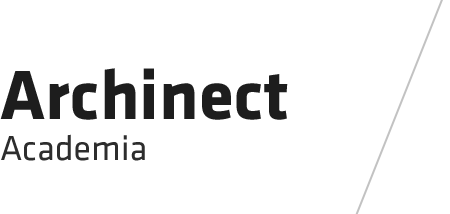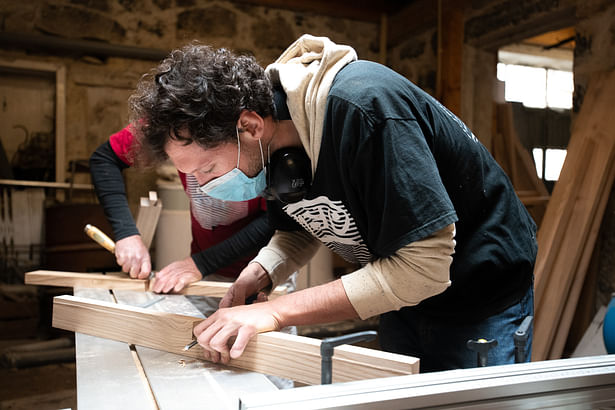
Berlin, DE

Critical Concrete is thrilled to announce the opening of applications for the third edition of its Post-Graduation Programme: Sustainable Sustainable Architecture, jointly offered with Escola Superior Artistica Porto (ESAP). This one year programme combines online interactive courses and a total of 6 weeks of practical construction workshops. Its hybrid methodology marries theory with practice, encouraging students to engage with their surrounding environments and apply theoretical learning to real construction projects. Leading practitioners in architecture and urban fields deliver courses in a varied range of topics including natural materials, participatory design, vernacular architecture and social project management.
We recently welcomed our current students to Porto to participate in their first practical construction workshop. They engaged in three projects with individual outcomes: renovating a roof for a low-income family to improve their quality of living; designing and building furniture for a community centre in the Ramalde neighbourhood to increase engagement; and constructing a solar water heater facade to explore alternative ways to capture energy. These projects not only benefitted Portuguese communities but participating students learned a wide array of skills and competencies from their involvement.
For instance, the roof team learned to appraise the existing structure and selectively replace timber members. The whole structure was protected using a blend of natural oils and insulated with wood fibre panels. “Its like a win-win situation’ said student Yazeed, “we learn how to install a roof and the end result would help someone’s living situation”. Working out of our carpentry workshop, the furniture team processed wood from trunk to final product, crafting beautiful, durable outdoor furniture to reactivate a community space. Students were challenged to design based on the material available with efficiency of cuts and a preference for friction joints. Jefferson remarked “after this I will be more worried about the waste we create in our job”. Finally, the solar facade team took on the challenge to carefully demolish and replace our production centre’s back facade. After being faced with the unexpected realities of an existing building, they had to quickly develop solutions to structural concerns and adapt the design accordingly. This experimental prototype will eventually heat both water and air by only using solar power. Zoé commented “I have used machines before, but now I could truly understand how to build a structure”.
We are proud to offer a range of modules touching on sustainable topics in architecture and beyond. For instance, students get to experiment with mycelium, producing bricks and prototypes with this pioneering bio-material. One student shared that “each step of working with mycelium surprised me” and it is “cool to learn about something being developed now”. Community participation is a core theme with courses bridging ethnographic methods into effective community engagement, equipping students with a toolkit to apply in their own contexts.
The most sustainable building is one that already exists: two modules delve into vernacular construction and the renovation of ancient buildings. Students are challenged to think critically about what constitutes vernacular architecture and how to sensitively approach refurbishment. Specifically they research their local context and construction methods
Paolo Marcolin, programme director, explains that the SSA “articulates and readapts traditional construction knowledge with sustainable construction methods, to use them in innovative and low-impact construction solutions”. The whole programme has been “inspired by individuals and organisations dedicated to sustainable social construction and involving unconventional architecture and urbanism”. Samuel Kalika, director of Critical Concrete, invites interested practitioners to “join us in this adventure” stating that “this programme is our answer to the question 'How to have a positive impact on our environment, engaging professionally in architecture and urbanism?”.
Following the success of our second year, Critical Concrete is looking forward to continue our partnership with ESAP and welcome a new cohort of like minded practitioners to the course. Applications are currently open for the 2022/23 academic year, which will continue our hybrid theoretical-practical educational model. We encourage applications from a wide range of backgrounds and individuals interested in sustainable urban development, low-tech construction and social justice. The deadline is 1st July. Early applications are highly encouraged as spaces are limited. Further information can be found at: https://criticalconcrete.com/education/sustainable-sustainable-architecture/ or by contacting ssa@criticalconcrete.com
No Comments
Block this user
Are you sure you want to block this user and hide all related comments throughout the site?
Archinect
This is your first comment on Archinect. Your comment will be visible once approved.